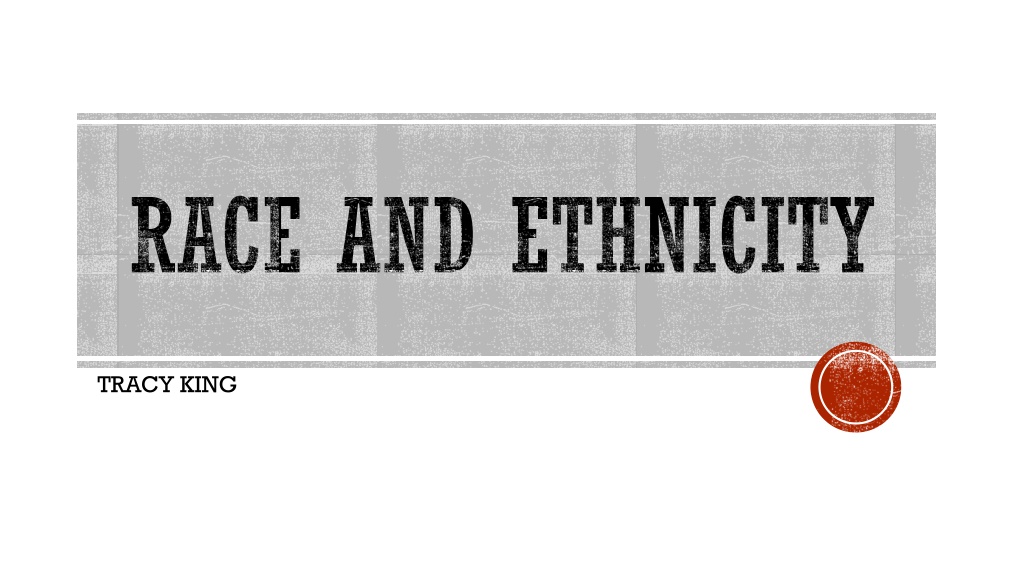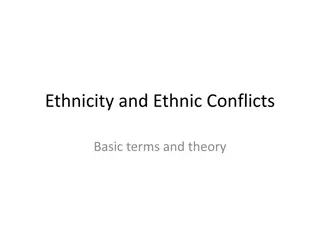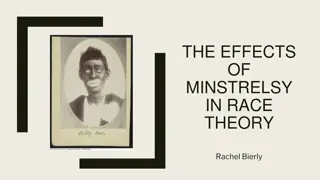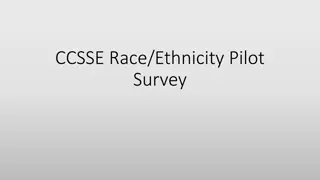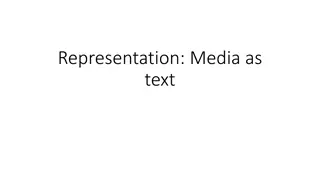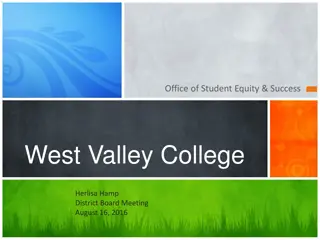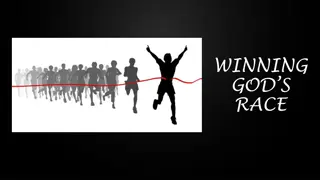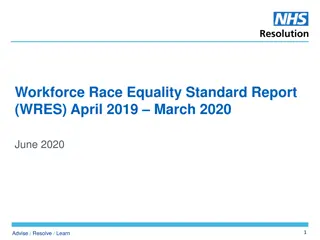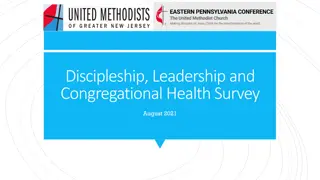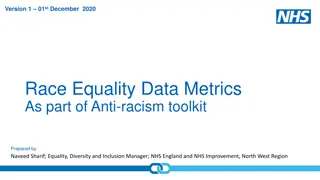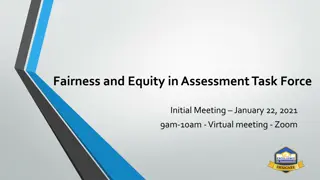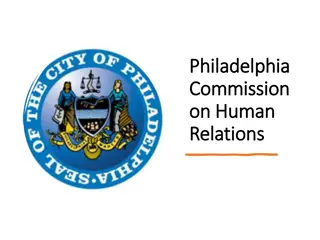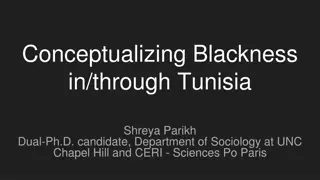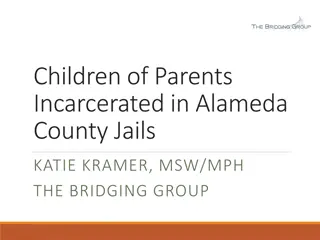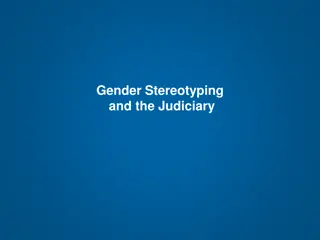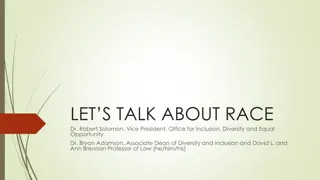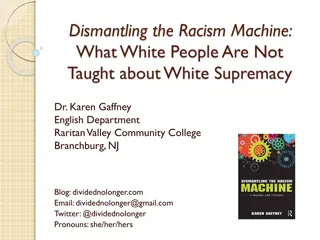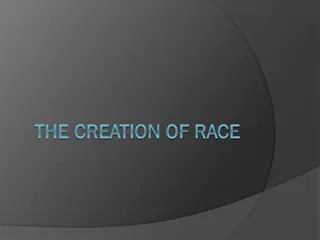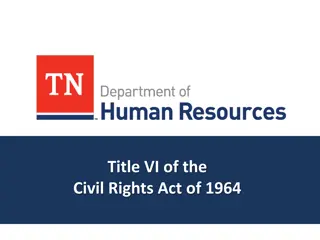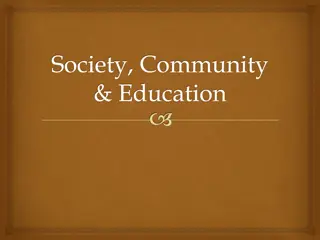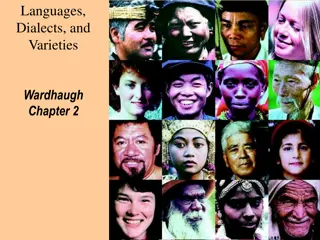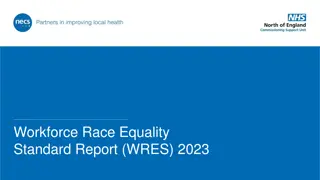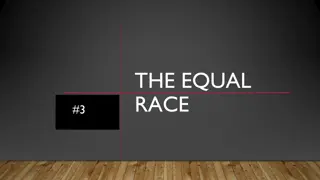Understanding Race and Ethnicity Issues in Society
Race and ethnicity play a significant role in how people are treated differently in society, leading to discrimination and racism. This content explores the impact of race on individuals and highlights the importance of addressing prejudices and biases. It sheds light on how ignorance and fear lead to the use of race against others and the need to foster inclusivity and understanding in our communities.
Download Presentation

Please find below an Image/Link to download the presentation.
The content on the website is provided AS IS for your information and personal use only. It may not be sold, licensed, or shared on other websites without obtaining consent from the author. Download presentation by click this link. If you encounter any issues during the download, it is possible that the publisher has removed the file from their server.
E N D
Presentation Transcript
RACE AND ETHNICITY TRACY KING
EQ: HOW IS RACE AND ETHNICITY USED TO TREAT PEOPLE DIFFERENTLY ? TQ: DO PEOPLE USE RACE AND ETHNICITY AS A MEANS TO TREAT OTHERS DIFFERENTLY?
RACE AND ETHNICITY Race Ethnicity A group of people that are identified as distinct from other groups because of physical or genetic traits. An ethnic group, a social group that shares a common and distinctive culture, religion, or language.
SOME PEOPLE USE RACE TO TREAT PEOPLE DIFFERENTLY WHEN IT COMES TO A PERSONS LOOKS. SKIN RACE: THE CAUCASIAN RACE RELIGION: THE JEWISH RACE NATIONALITY: THE BRITISH RACE ENTIRE HUMAN RACE: THE HUMAN RACE
RACISM Racism has a long and unpleasant history in the United States. Though some process has been made it is still a big problem It holds a hostile attitude towards a person because of race Many still use race humor an laugh as it s a joke. Do you or your friends make jokes? Do you think that its ok?
WHY DO PEOPLE USE RACE AGAINST ANOTHER? A person may feel threatened by a different race or culture. We develop our beliefs as we grow up, if you grow up in a family or around friends that don t like people because of race you may think its normal and acceptable. Based on ignorance and fear that are different.
RACE The perceptions of how blacks are treated vary widely by race in the United States.
RACE AND ETHNICITY Whites, young adults, college graduates, and democrats are more likely to say race has been an advantage.
PERSONAL EXPERIENCE WITH DISCRIMINATION White Race Black Race 5% say the overall impact is relatively minor. 71% have experienced discrimination or treated unfair. 62% say hasn t made much of a difference in the ability to succeed. 11% says it happens on a regular basis. 31% say race has made things easier for them. 60% have experienced it rarely or from time to time.
CONCLUSION JUST BECAUSE SOMEBODY S COLOR, LANGUAGE, SEX, OR RELIGION IS DIFFERENT DOES NOT MEAN THAT THEY SHOULD BE TREATED DIFFERENT. EVERYBODY SHOULD BE TREATED EQUALLY AND WITH DIGNITY NO MATTER WHAT THEIR CIRCUMSTANCES.
Houghton Mifflin Harcourt, (2016). HTTPS://WWW.CLIFFSNOTES.COM/STUDY- GUIDES/SOCIOLOGY/RACE-AND-ETHNICITY/RACE-AND-ETHNICITY-DEFINED Scully,W,(2012).HTTP://WWW.THENEWSDISPATCH.COM/OPINION/ANVIL_CHORUS/ART ICLE_DF8092DA-19DB-5E99-905C-2E4FC34DEE5B.HTML Pew Research Center,(2016).HTTP://WWW.PEWSOCIALTRENDS.ORG/2016/06/27/ON- VIEWS-OF-RACE-AND-INEQUALITY-BLACKS-AND-WHITES-ARE-WORLDS-APART/ WITT, J, (2016). SOC
